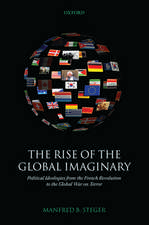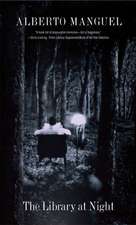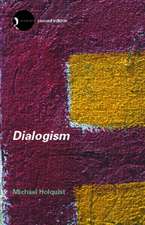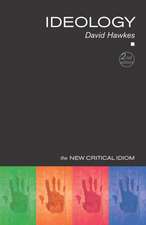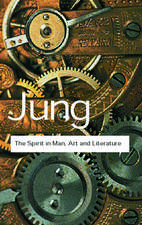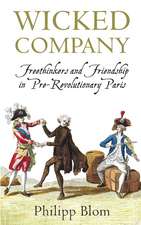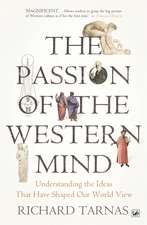Romantic Science and the Experience of Self: Transatlantic Crosscurrents from William James to Oliver Sacks: Routledge Library Editions: Romanticism
Autor Martin Halliwellen Limba Engleză Paperback – 17 oct 2017
Beginning with the ferment of intellectual activity in late eighteenth-century German Romanticism, Halliwell argues that only with William James’ theory of pragmatism early in the twentieth century did romantic science become a viable counter-tradition to strictly empirical science. Stimulated by debates over rival models of consciousness and renewed interest in theories of the self, Halliwell reveals that in their challenge to Freud’s adoption of ideas from nineteenth-century natural science, these thinkers have enlarged the possibilities of romantic science for bridging the perceived gulf between the arts and sciences.
| Toate formatele și edițiile | Preț | Express |
|---|---|---|
| Paperback (2) | 240.24 lei 6-8 săpt. | |
| Taylor & Francis – 17 oct 2017 | 240.24 lei 6-8 săpt. | |
| Taylor & Francis – 7 dec 2020 | 323.28 lei 6-8 săpt. | |
| Hardback (2) | 601.63 lei 6-8 săpt. | |
| Taylor & Francis – 5 iun 2019 | 601.63 lei 6-8 săpt. | |
| Taylor & Francis – 4 apr 2016 | 766.65 lei 6-8 săpt. |
Din seria Routledge Library Editions: Romanticism
-
 Preț: 171.80 lei
Preț: 171.80 lei - 38%
 Preț: 765.01 lei
Preț: 765.01 lei - 19%
 Preț: 241.63 lei
Preț: 241.63 lei - 38%
 Preț: 763.78 lei
Preț: 763.78 lei - 38%
 Preț: 765.01 lei
Preț: 765.01 lei -
 Preț: 315.57 lei
Preț: 315.57 lei - 38%
 Preț: 766.65 lei
Preț: 766.65 lei -
 Preț: 231.30 lei
Preț: 231.30 lei -
 Preț: 319.39 lei
Preț: 319.39 lei - 20%
 Preț: 211.93 lei
Preț: 211.93 lei - 19%
 Preț: 214.23 lei
Preț: 214.23 lei - 22%
 Preț: 353.55 lei
Preț: 353.55 lei - 18%
 Preț: 244.83 lei
Preț: 244.83 lei -
 Preț: 172.76 lei
Preț: 172.76 lei - 38%
 Preț: 766.24 lei
Preț: 766.24 lei -
 Preț: 315.57 lei
Preț: 315.57 lei - 38%
 Preț: 766.24 lei
Preț: 766.24 lei - 37%
 Preț: 625.03 lei
Preț: 625.03 lei - 19%
 Preț: 241.63 lei
Preț: 241.63 lei - 19%
 Preț: 241.63 lei
Preț: 241.63 lei - 38%
 Preț: 763.78 lei
Preț: 763.78 lei -
 Preț: 320.36 lei
Preț: 320.36 lei -
 Preț: 318.44 lei
Preț: 318.44 lei -
 Preț: 460.59 lei
Preț: 460.59 lei - 37%
 Preț: 486.20 lei
Preț: 486.20 lei - 16%
 Preț: 323.44 lei
Preț: 323.44 lei -
 Preț: 239.95 lei
Preț: 239.95 lei - 36%
 Preț: 9476.59 lei
Preț: 9476.59 lei
Preț: 240.24 lei
Preț vechi: 295.88 lei
-19% Nou
Puncte Express: 360
Preț estimativ în valută:
45.98€ • 49.97$ • 38.65£
45.98€ • 49.97$ • 38.65£
Carte tipărită la comandă
Livrare economică 22 aprilie-06 mai
Preluare comenzi: 021 569.72.76
Specificații
ISBN-13: 9781138643260
ISBN-10: 1138643262
Pagini: 294
Dimensiuni: 156 x 234 x 28 mm
Greutate: 0.41 kg
Ediția:1
Editura: Taylor & Francis
Colecția Routledge
Seria Routledge Library Editions: Romanticism
Locul publicării:Oxford, United Kingdom
ISBN-10: 1138643262
Pagini: 294
Dimensiuni: 156 x 234 x 28 mm
Greutate: 0.41 kg
Ediția:1
Editura: Taylor & Francis
Colecția Routledge
Seria Routledge Library Editions: Romanticism
Locul publicării:Oxford, United Kingdom
Public țintă
General, Postgraduate, and UndergraduateCuprins
Preface; Introduction: The Possibilities of Romantic Science; 1. William James: The Pragmatic Romantic 2. Otto Rank: The Creative Romantic 3. Ludwig Binswanger: The Existential Romantic 4. Erik Erikson: The Biographical Romantic 5. Oliver Sacks: The Storytelling Romantic; Conclusion: The Challenge of Romantic Science; Bibliography; Index
Notă biografică
Multivolume collection by leading authors in the field
Recenzii
"By discussing subjectivity and different sociohistorical understandings of it — particularly with respect to the relationship between romantic and positivist science, Halliwell provides the reader with a comprehensive account of how James developed his unique version of romantic science. In turn, Halliwell’s work illuminates ways in which James made his mark on the (then) fledgling field of psychology, and moves on to consider how James’s ideas endured well into the twentieth century." - Elizabeth Lowry, Arizona State University
Descriere
First published in 1999. The work of five influential figures in twentieth-century transatlantic intellectual history forms the basis of this engaging interdisciplinary study of romantic science. In this book, Martin Halliwell constructs a tradition of romantic science by indicating points of theoretical intersection in the thought of William James (American philosopher); Otto Rank (Austrian psychoanalyst); Ludwig Binswanger (Swiss psychiatrist); Erik Erikson (Danish/German psychologist); and Oliver Sacks (British neurologist).




